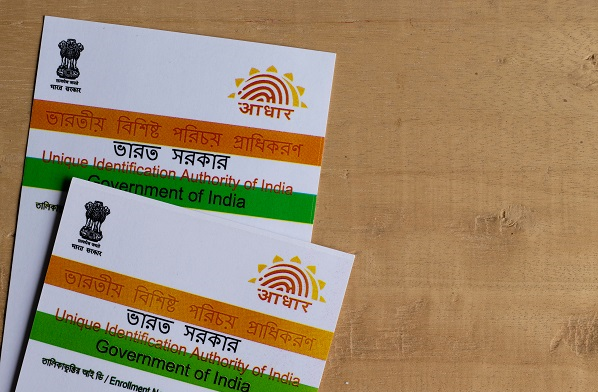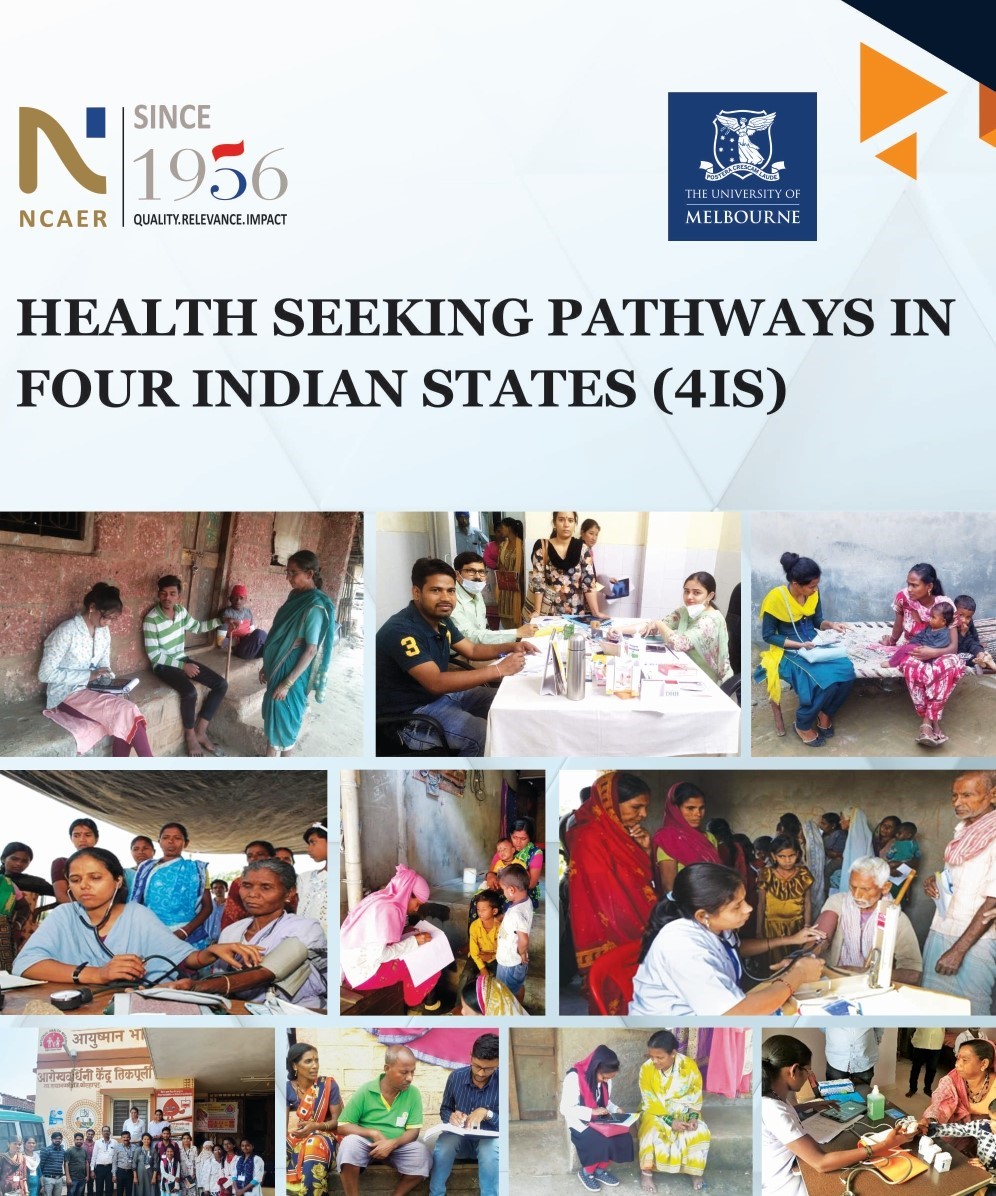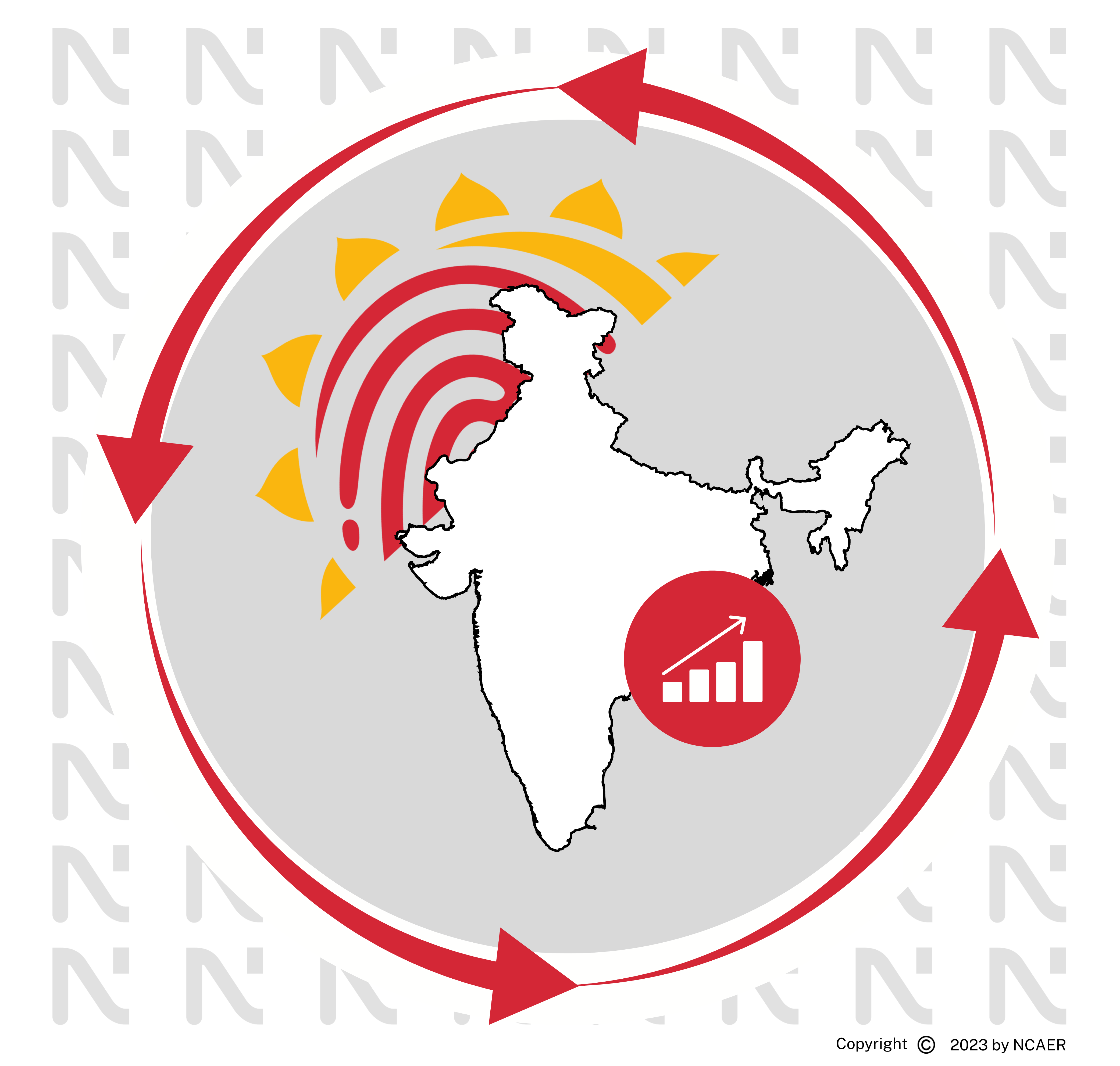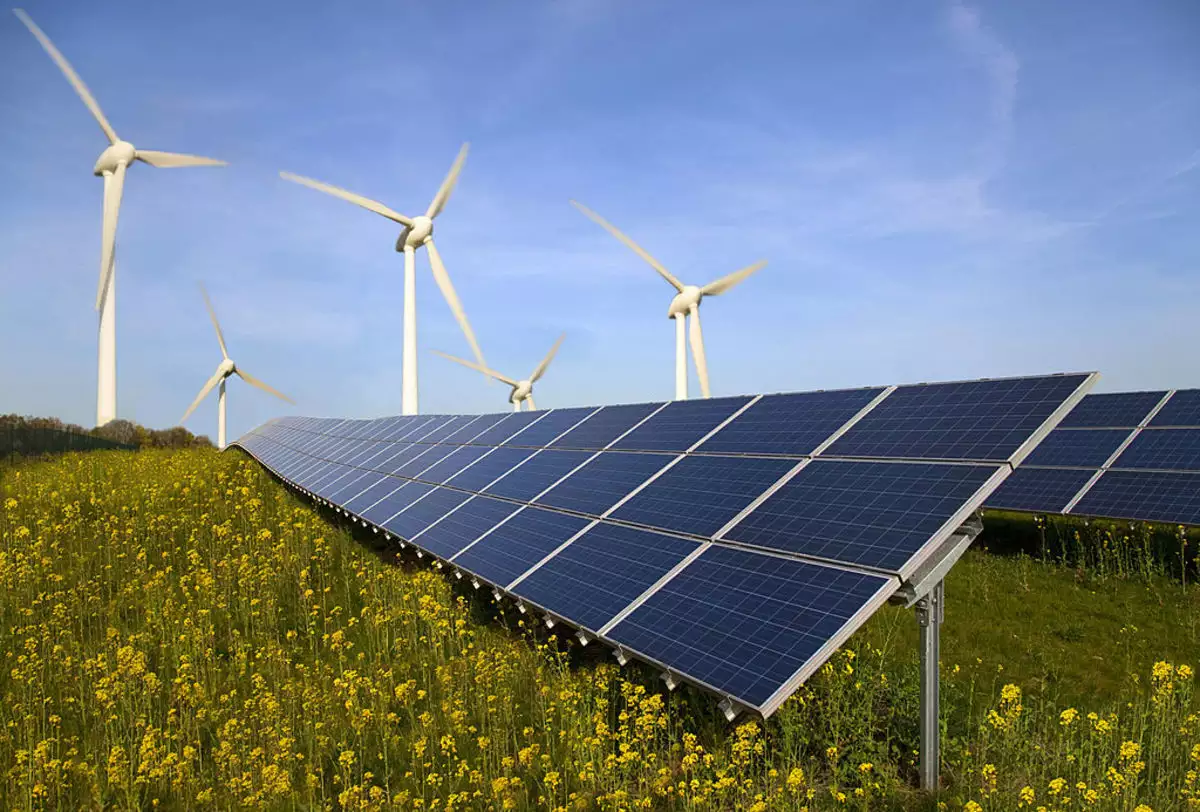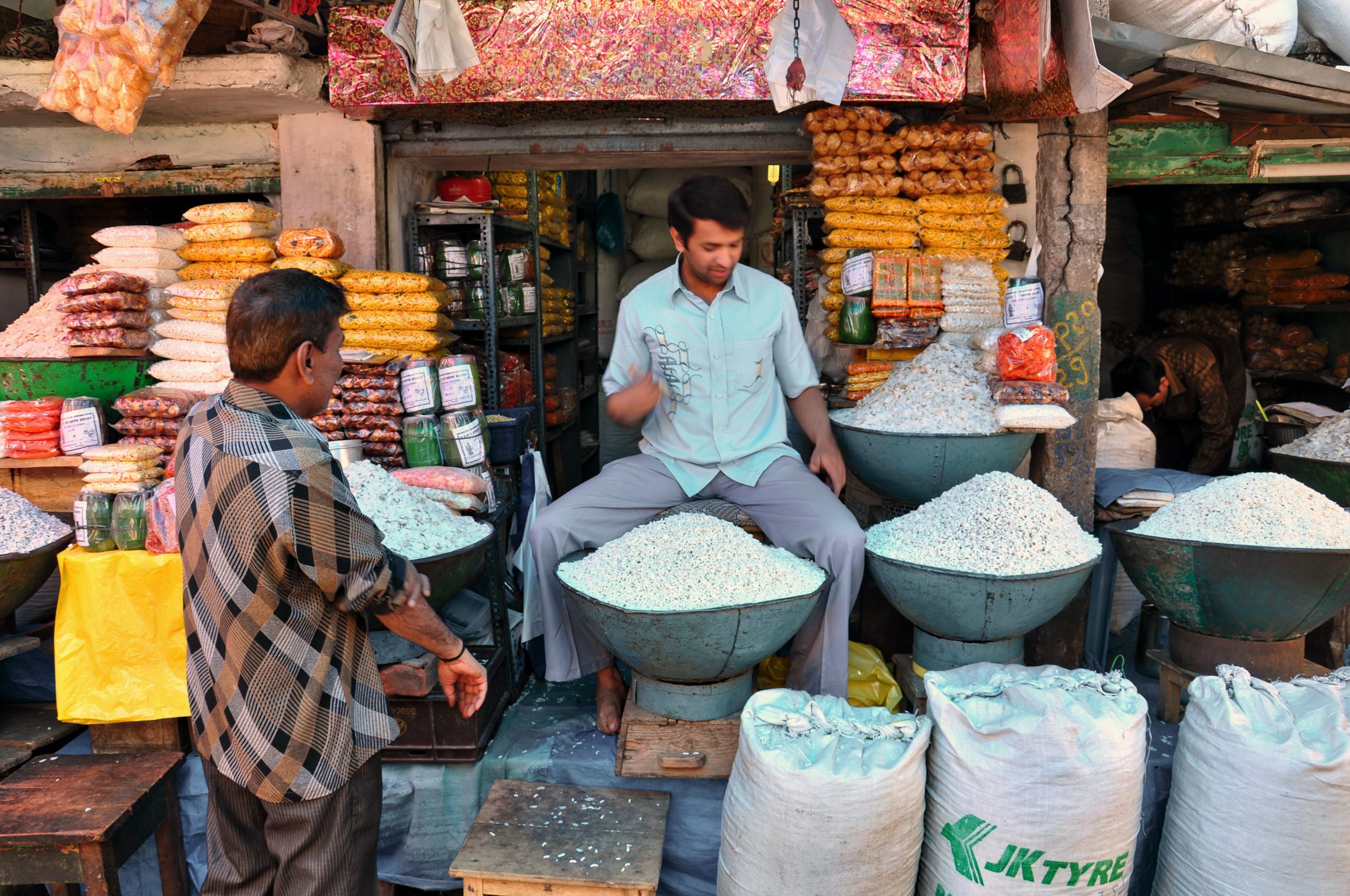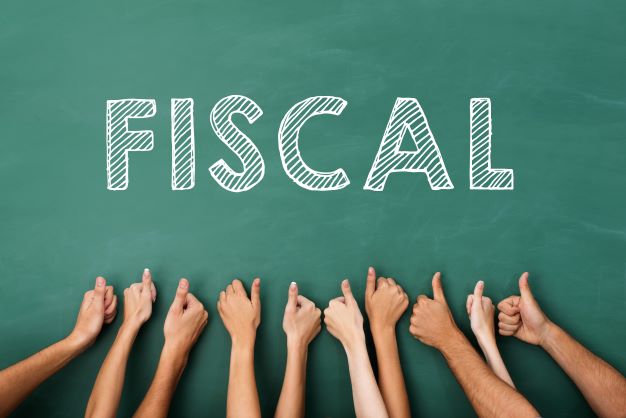Projects
-
In the Review, we summarise the economic and policy developments in India; monitor global developments of relevance to India; and showcase the pulse of the economy through an analysis of high-frequency indicators and the heat map. See all issues of the Monthly Economic Review
-
Like many emerging economies, India faces two simultaneous fundamental economic challenges– increasing prosperity, and reducing emissions. At present, however, there is little understanding of how to combine a low-carbon energy transition in sectors like electricity or transportation with an ambitious, energy-driven development agenda. In this project, NCAER will modify its established computable general equilibrium... Read More
-
The focus on states being the drivers for the next stage of reforms has been echoed over the last decade. States now have a proactive role to play and take responsibility in the next set of changes in areas of relevant domains given that they are largely under their jurisdictional purview. Additionally, state finances are... Read More
-
The National Land Records Modernisation Programme (NLRMP) was launched in 2008 as a centrally sponsored scheme, relaunched as the Digital India Land Records Modernisation Programme in 2016 with 100% centrally funded scheme. The scheme, now extended till 2025-26, aims to develop a modern, comprehensive and transparent land record management system with the integration of all... Read More
-
The Pradhan Mantri Krishi Sinchayee Yojana (PMKSY), launched in 2015-16, aims to enhance water use efficiency (WUE) through modern tools such as the Supervisory Control and Data Acquisition (SCADA) system, micro-irrigation, and pipe distribution networks. The initiative seeks to reduce water allocation for agriculture from 70% to 50% while ensuring better on-farm water access, expanding... Read More
-
Action Research & Research Studies wing of the Ministry of Panchayati Raj (MoPR) has awarded the study to the National Council of Applied Economic Research (NCAER) to assess the impact of Central Finance Commission’s (CFC) grant to the Rural Local Bodies (RLBs). The idea of fiscal devolution in India revolves around transferring financial resources from... Read More
-
NCAER is working closely with the Finance Commission as a knowledge partner. The specific issues that we are helping the 16th Finance Commission with include – (i) State-Level Diagnostic Reports and Policy Briefs; (ii) Analysis of States’ Fiscal Situation and Debt Sustainability; (iii) State-Level Growth: Possibilities of Convergence Across States; (iv) Analyzing the features and... Read More
-
The Investor Education and Protection Fund Authority (IEPFA), Ministry of Corporate Affairs, GoI and NCAER, under an MoU in March 2020 established the IEPF Chair Unit at NCAER to promote investor education and protection through impactful events, seminars, workshops, conferences, and research. Traversing through the COVID-19 pandemic, the unit transitioned majorly from virtual events to... Read More
-
This study explores the claim settlement processes of financial regulatory frameworks across the globe, focusing on statutory provisions, dormancy periods, post-dormancy actions, and the role of digital tools. By examining frameworks in a number of systemically important jurisdictions including the United States, Canada, the United Kingdom, Australia, and India, the study highlights best practices in... Read More
-
"The economic stability of India is intricately linked to climatic patterns. Our collaboration with IGSD will help us build robust models to predict and mitigate the adverse effects of climate change, particularly those stemming from Arctic ice melt, on our agriculture and economy."—says Sanjib Pohit The Arctic is warming four times faster than the... Read More
-
COP28 emphasized that transitioning away from fossil fuels in energy systems is required in a just, orderly and equitable manner. Green transition is an imminent pressure on the economy as the global community is facing the challenge of sustainability, energy security and environmental protection. The target to achieve low carbon development growth for India requires... Read More
-
Under the aegis of “Smart Cities and Academia towards Action & Research (SAAR)” program, the Smart Cities Mission (SCM) directorate has started a joint initiative of MoHUA, National Institute of Urban Affairs (NIUA) and leading Indian academic institutions of the country for impact assessment for the experiments done in the Smart Cities. One of these... Read More
-
The scope of the study is focused on studying the demand and supply-sides implications of the policies / guidelines issued in Aadhaar enrolment and updation eco-system. NCAER will study the impact of new policies/guidelines of the Aadhaar Enrolment and Update Ecosystem, upon individuals seeking to enrol Aadhaar number or have enroled in the last two... Read More
-
The study aims at undertaking a comprehensive demand side analysis incorporating an in-depth assessment of select high priority sectors to arrive at the demand (and incremental demand) estimates with respect to sectors and key job roles. A dynamic framework for skill demand assessment that can be regularly updated to forecast skill needs in alignment with... Read More
-
Under the aegis of “Smart Cities and Academia towards Action & Research (SAAR)” program, the Smart Cities Mission (SCM) directorate has started a joint initiative of MoHUA, National Institute of Urban Affairs (NIUA) and leading Indian academic institutions of the country for impact assessment for the experiments done in the Smart Cities. One of these experiments... Read More
-
This study aims to provide an understanding of health seeking behaviour in two States with low levels of health system development: Odisha and Uttar Pradesh; and two with higher levels of health system development: Maharashtra and Punjab’. The study sheds light on the questions of out-of-pocket spending, catastrophic health expenditure and distress financing, and treatment... Read More
-
The twin objectives of the study entitled “Telecom Sector External Profile” are: To map the external profile of the telecom manufacturing sector and; To understand the opportunities and challenges that this sector faces in becoming a global hub. The study will be implemented in two phases: Phase I What is the telecom sector? Telecom sector... Read More
-
The Government of India announced a net-zero target to be achieved by 2070 and various ambitious short-term climate goals to be achieved by 2030 during the recent Conference of Parties-26 (COP-26) in Glasgow. However, the impact of energy transition on socio-economic aspects needs to be comprehensively understood. The policy intervention for achieving a low-carbon pathway... Read More
-
The UN Sustainable Development Goal 16.9 states that by 2030, all countries must provide legal identity for all their citizens, including birth registration. India launched its own digital identity in 2009. Since then, approximately, 95 per cent of India’s population has been enrolled with Aadhaar. The Aadhaar is universal in nature, i.e. there are no... Read More
-
The Indian sub-continent showcases significant variations in terms of natural resources, capital and labour productivity, access to energy sources, and production methods. The entire geographical expanse of India falls under 15 agro-climatic zones, which are likely to be affected differently due to the impending climate change. Given these variations in agricultural, manufacturing, and energy production... Read More
-
As an innovative vehicle, the India Infrastructure Finance Company Limited (IIFCL) was set up in 2006 as a non-banking finance company fully owned by the Government. IIFCL was allowed to raise funds from domestic and overseas markets on the strength of sovereign guarantees to keep borrowing costs low. Moreover, such borrowings did not have to... Read More
-
NCAER will partner with ADB to build cutting-edge CGE modelling capacity in India in collaboration with the world’s leading CGE centers. Building on past CGE work and existing modelling capacity, the research institute will build dynamic, quarterly, and regional model variants to serve the policymaking community with economic policy simulations that enable better policy, program... Read More
-
The present evaluation study will evaluate the Price Stabilization Fund (PSF) and Price Support Scheme (PSS) schemes through a Primary survey to assess how these schemes are meeting the objective. This Evaluation study will cover Onion and five Pulses (namely Moong, Masur, Gram, Toor and Urad) to evaluate these schemes.
-
The Concessionaire set the initial fare structure of Hyderabad Metro Rail (HMR), and any subsequent fare revision needs to be approved by a Fare Fixation Committee (FFC) appointed by the Government of India. The purpose of the study is to arrive at a revised fare structure for Hyderabad Metro Rail (HMR). Study will conduct passenger... Read More
-
Macro-Econometric Modelling for India Incorporating Accounting of Centre-State Fiscal Systems for Finance Commission, GOI The study will prepare a macro-fiscal framework for medium term projections and simulations of alternative scenarios keeping in view the issues that need to be addressed by the Finance Commission in light of Commission’s Terms of Reference.















